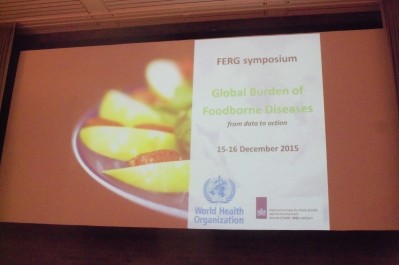Food safety brought to the fore by WHO

Out of 10,040 food samples analysed in Montenegro in 2014, around 11.5% were bad.
Preliminary data from the Montenegrin Centre for Control and Prevention of Diseases revealed 765 cases of contagious intestinal diseases possibly linked to eating food containing microbiological agents.
Montenegrin and Slovenian action
Dr Boban Mugosa, Director of the Institute of Public Health, said the number of registered salmonellosis in 2014 was 220.
“A local food safety problem can easily grow beyond national borders to become a big international problem calling for urgent attention.”
Mina Brajovic, head of the WHO Country Office in Montenegro, said foodborne diseases are a major cause of illness and death in the world.
“All outbreaks of foodborne diseases, recorded so far, point to the fact that these diseases create barriers to socioeconomic development as they have a negative influence on health, and economically affect individuals, their families and in general, society,” she said.
FQN spoke to WHO ahead of our special edition newsletter to mark the day last month.
Milojka Kolar Celarc, Minister of Health in Slovenia, joined citizens in physical exercise to promote the national nutrition and physical exercise programme, which is in the process of being endorsed.
Dejan Židan, Minister of Agriculture, Forestry and Food, jointly opened the Slovenian national conference on food safety.
The conference covered an overview of foodborne diseases, food safety in emergencies, enforcement of legislation, and the role of national laboratories, new technologies, international and nongovernmental organizations.
Turkey and Moldova focus
In Turkey, more than 200 experts including representatives from the Ministry of Health; Ministry of Food, Agriculture and Livestock; Hacettepe University; the United Nations Food and Agriculture Organization (FAO), NGOs and WHO/Europe attended an event to mark the day last month.
Prof Dr İrfan Şencan, deputy Undersecretary of the Ministry of Health, Turkey, said highlighting the challenges and opportunities with food safety has provided an important platform for relevant sectors and authorities to come together and discuss their responsibilities.
“The Ministry of Health will continue to strengthen its activities in this area, placing special emphasis on improving food safety and healthy nutrition," he said.
Every year in the Republic of Moldova, over 10,000 cases of foodborne disease are registered, and this figure is growing.
Mircea Buga, Moldovan Minister of Health, said: "The main factors contributing to the spread of foodborne diseases in the Republic of Moldova are related to the marketing of foods in unauthorized places; health safety violations in food processing and neglecting hygiene standards with food storage.
“The Republic of Moldova needs to bring national regulations on food safety up to international standards,” he said during a press conference with the Ministry of Agriculture and Food Industry and the National Agency for Food Safety.
Turkmenistan and former Yugoslav Republic of Macedonia
A national conference in Turkmenistan was organized by the Ministry of Health and Medical Industry, WHO Country Office and WHO/Europe as part of the 20 year anniversary for the National Health Programme.
WHO and UNICEF experts on food safety, representatives from the Turkmenistan Parliament (Mejlis), Ministry of Trade and Foreign Economic Affairs, State Veterinary Service, and the medical industry, met to discuss health safety issues in readiness for the Asian Indoor and Martial Arts Games, which will be hosted by Turkmenistan in 2017.
The conference was followed by a meeting of the members of the Intersectoral Committee, made up of 19 ministries and agencies led by the Ministry of Health and Medical Industry of Turkmenistan.
It included training on chemical food safety and methodology of toxicological studies for laboratory specialists.
The Ministry of Health of the former Yugoslav Republic of Macedonia revealed plans to enhance health services and educate doctors on strengthening health system capacity as part of the day.
Technical experts from the public and occupational health sector, the Ministry of Health, the Labour Inspectorate, the Association for the Protection of Workers Health and WHO met and focussed on key issues related to food safety in the European Region and at national level, with a specific emphasis on workers' health.




























